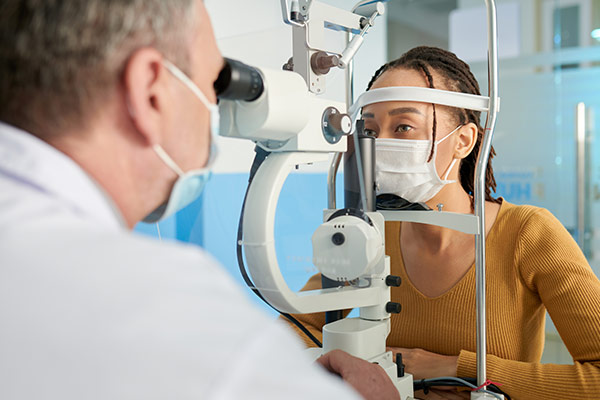With the advancements in technology and treatments for chronic dry eye, many people with this condition can now live with greater comfort and less pain. In this article, we’ll talk about the various causes of dry, itchy eyes and how you can help relieve them.
What Can Cause Dry/Itchy Eyes?
When your eyes become red and itchy, it’s natural to try and relieve them by taking the appropriate measures. However, it’s essential to understand the different symptoms of allergy and infection so as to not make your condition worse.
Allergies
If you get itchy eyes all the time, you might have an allergy. This can usually happen during the same time of year. If it does, then the chances are that you’ll also experience other allergic reactions such as coughing and nasal congestion.

The symptoms of allergic reaction are triggered by a substance known as histamine, which can trigger an inflammatory response in the body. Being exposed to allergens triggers this reaction. To minimize the effects of allergies, stay inside and watch the weather reports when there’s a high pollen count. Wash clothes frequently to remove particles from the air.
If your symptoms are severe enough, talk to your doctor about taking medication for your allergies. However, it can take a few weeks for this to become effective. Although seasonal allergies are commonly triggered by specific organisms, such as fungi and dust, perennial allergic reactions are caused by other factors.
You might also be allergic to certain products commonly used in your home. If the allergen has been removed, try taking a break from products that come into contact with your eyes. An allergist can perform a skin test to determine if you have a severe allergic reaction. The test involves exposing the affected area to small allergen concentrations, such as pet dander or ragweed.
Airborne Irritants and Loss of Moisture
Some people are sensitive to certain irritants such as smoke, diesel exhaust, and perfumes. You can avoid their effects by using a cool, damp cloth to clean your eyes. Tears usually keep your eyes moist and fresh, but, as you get older, the tears may start to dry.
People with diabetes and arthritis may also experience fewer tears due to their medications. Some of these include antidepressants and birth control pills. Also, tears may evaporate too quickly. This causes dry eyes. If you have been outside for a long time or experience low humidity, these conditions could cause your eyes to get dry.
Infection
Your eyes are vulnerable to various infections, which can cause itchy and inflamed eyes. One of the most common causes is conjunctivitis, a type of pink eye. Uveitis is an inflammatory eye infection that affects the color of your eye. In addition, it can cause extreme sensitivity to light.
A doctor can diagnose both infections and determine which one is best treated. Usually, antibiotics are used to treat both types of infections. In more severe cases, You may need an immunological-suppressant drug. This can lead to vision loss and other complications.
Eyestrain
Sitting at a computer for a long time can strain your eyes, especially if you’re in a dimly lit area. The best way to prevent eye strain is to rest them regularly.
Blepharitis
Blepharitis is a condition that causes red and itchy eyes. It usually appears when the oil glands on the base of your eyelashes get blocked. Although it can’t usually cause vision loss, it can still lead to other complications such as inflammation and infection.
When You Should See a Doctor
Seek medical attention if you have the following symptoms along with your dry, itchy eyes:
- Severe pain and/or irritation
- Extreme headaches
- Swelling
- Nausea
- Pus or blood discharge from the eyes
- Double vision or loss of vision
- Seeing halos around lights
- Injury to your eyes
Treatment
These home remedies can help you treat itchy eyes. However, it’s essential to consult a doctor if you experience any symptoms of severe illness.
- Eye Drops: Over-the-counter eye drops are always helpful for treating dry and itchy eyes. Some of these are preservative-free and can help with skin conditions and allergies.
- Cold Compress: Another way to relieve eye itch is by soaking a clean cloth in cold water. This method works by applying it to closed eyes several times.
- Warm Compress: Soak a clean washcloth in warm water and apply it over the closed eye to help remove the oil. Press the outer edge of the eye to loosen the oils. This method works best for minimizing inflammation and improving the appearance of tired eyes.
- Blink More: Staring at a computer can reduce the amount of time you blink per minute. To keep your eyes moist, set the screen below eye level. This will help prevent tears from forming between blinking.
- Stay Hydrated: Drinking water helps nourish and maintain the body’s various organs, including the eyes. It’s also essential to keep them hydrated.
Ideally, aim for eight to 10 glasses of water throughout the day. - Wear Wraparound Sunglasses: This style is excellent for protecting your eyes from the effects of dry winds.
- Use a Humidifier with a Filter: This can help add moisture and remove dust particles from the air.










